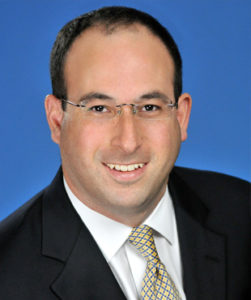
 By Frank Cruz-Alvarez, a Partner, and Melissa N. Madsen, Of Counsel, with Shook, Hardy & Bacon L.L.P. in the firm’s Miami, FL office. Mr. Cruz-Alvarez is the WLF Legal Pulse blog’s Featured Expert Contributor on Civil Justice/Class Actions.
By Frank Cruz-Alvarez, a Partner, and Melissa N. Madsen, Of Counsel, with Shook, Hardy & Bacon L.L.P. in the firm’s Miami, FL office. Mr. Cruz-Alvarez is the WLF Legal Pulse blog’s Featured Expert Contributor on Civil Justice/Class Actions.
As of May 23, 2019, the evidentiary standard governing the admissibility of expert testimony has changed in Florida, once again. A newly constituted Florida Supreme Court sua sponte adopted the more stringent Daubert standard in In re Amendments to the Florida Evidence Code, No. SC19-107. The per curiam decision (joined by five of the seven justices) was an about-face from the court’s 2017 ruling that rejected the Florida Legislature’s 2013 amendment of the Florida Evidence Code. That amendment replaced the Frye standard with the Daubert standard. Effective immediately, trial courts must now act as gatekeepers before permitting a jury to hear and consider expert testimony.
The Florida Supreme Court’s decision is the latest development in a multi-year saga over whether Florida courts should embrace the standard used by federal courts and a majority of other states, or continue to apply its more lenient Frye standard.
Before 1993, Frye v. United States, 298 F. 1013 (D.C. Cir. 1923), provided the test for admissibility of expert opinion in Florida and federal courts. To meet the Frye standard, expert testimony presented to the court must be interpreted as “generally accepted” by the relevant scientific community. In 1993, the United States Supreme Court, interpreting Rule 702 of the Federal Rules of Evidence, adopted a new test in Daubert v. Merrell Dow Pharmaceuticals, 509 U.S. 579 (1993). The Daubert standard requires a trial court to first determine whether evidence meets certain tests of relevancy and reliability before a jury can consider it. While this new Daubert standard applied to all federal courts, Florida opted to stick with Frye. That is, until the Florida Legislature adopted amendments to the Florida Evidence Code that incorporated the Daubert standard.
The intermediate appellate courts in Florida, lacking guidance on how to apply the new standards, initially struggled with implementing the legislature’s amendments. The Fourth District Court of Appeal held in Crane Co. v. DeLisle, 206 So. 3d 94 (Fla. 4th DCA 2016), that it would apply the new statute incorporating Daubert because statutes must be presumed constitutional unless declared otherwise. But the following year, the Florida Supreme Court declined to adopt the Daubert Amendment as a court rule to the extent it was procedural. In re Amendments to the Florida Evidence Code, 2010 So. 1231 (Fla. 2017). The court based its decision primarily on unfounded concerns raised by the plaintiffs’ bar—which disfavors Daubert because in theory it prevents frivolous claims based on “junk science” from ever reaching a jury—about litigants’ access to courts. See In re Amendments to the Florida Evidence Code, No. SC19-107, slip op. at 2.
A year later, the Florida Supreme Court accepted discretionary-review jurisdiction of the Fourth District’s DeLisle opinion as a vehicle to clarify what the proper standard for expert testimony should be in Florida. In DeLisle v. Crane Co., 258 So. 3d 1219 (Fla. 2018), the court concluded that the Florida Legislature overstepped its authority when it adopted the Daubert standard, and it held the Daubert Amendment unconstitutional. The court reasoned that the standard for admitting expert testimony was a procedural matter solely within the authority of the court. As of October 2018, Florida returned once again to the Frye standard for the admissibility of expert testimony in Florida.
Seven months later, a newly constituted Florida Supreme Court—citing its “exclusive rulemaking authority” under the Florida Constitution—reversed course. The court revisited and reversed its February 2017 decision that declined to adopt the Daubert Amendment as a rule of court. Daubert now reigns (once again) as the governing standard for the admissibility of expert testimony—a significant win for the quality of expert testimony in Florida courts.
The state high court’s re-embrace of Daubert is significant for several reasons. First, the substantive change will affect the quality of the expert testimony and evidence presented to juries in Florida. In other words, the change should weed out frivolous claims based on junk science. Second and equally significant is the urgency reflected in the timing of the court’s ruling. The fact that the court did not wait for a new “case or controversy” suggests that it feels strongly that adherence to the Daubert standard is important, and is sending a message to trial judges that there is now a majority on the Court that will ensure that junk science has no place in a court of law in Florida. Even plaintiffs’-lawyer-friendly trial judges will now have to think twice about letting junk science go forward because of the threat of reversal.
That second point is especially important considering the state of affairs in other jurisdictions whose legislatures or courts have adopted the Daubert standard. In states like Missouri and California, trial courts have not faithfully and consistently performed their gatekeeping duties, allowing juries to consider junk science by unqualified experts. The recent rise in runaway jury verdicts can be attributed in no small part to judges in such states treating Daubert as a paper tiger. Litigants in Florida, as well as appeals court judges, should thus stand ready to routinely remind trial judges of the Daubert duties.
